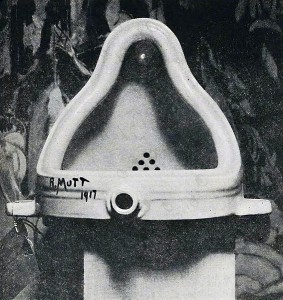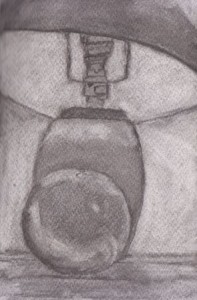Thanks to Iain Maloney – his debut novel, First Time Solo is out this year – I’m a link in a chain. The idea is that writers answer four questions on their blog – What am I working on? How does my work differ from others in its genre? Why do I write what I do? How does my writing process work? – and then nominate one or two other writers to do the same. You can see Iain’s answers here. And here are mine:
What am I working on?
I’ve just finished a short story for an anthology edited by Ian Whates (Solaris 3). It’s called ‘The Goblin Hunter’. I’m currently working on another short story.
I’ve recently completed a new draft of Mother of Eden, which will be published by Corvus later this year, and another draft of the new, and quite substantially rewritten, edition of Marcher, also to be published later this year (by NewCon Press). I’m waiting for some editorial feedback on Mother of Eden, and a friend is kindly having a look at Marcher for me. Hence the opportunity for a story-writing interlude.
How does my work differ from others in its genre?
Genre’s a slippery concept. It’s one of those words that we use as if we all mean the same thing by it, but in fact it can mean a number of different things.
Leaving that aside, though, every single bit of fiction that I’ve published has been categorizable as science fiction, in so far as (a) there’s always something in the world of the story that’s different from the world we live in, and (b) that something is always, at least nominally, explainable by science, rather than being supernatural. (I did write one story – ‘The Warrior Half-and-Half’ – where there was a dispute between two characters about whether the latter was the case.)
I couldn’t possibly claim my work to be different from everything else in the science fiction arena, but there are some things quite commonly found in science fiction that I tend to avoid:
I’m not keen on thriller-style protagonists or a thriller-like stance on life: hard-boiled, supercompetent, nonchalantly violent, effortlessly at home with technology. This may partly be because such people are so utterly unlike myself that I find it hard to imagine myself inside their heads, but I suspect that they are equally alien to a lot of people who write about them, and that this is why they often seem rather wooden, as characters tend to be if the author hasn’t been able to sit behind their eyes. I try to give my characters real emotions. Indeed their emotional lives are often what I start with.
I try to avoid overdoing the pyrotechnics. I get quickly bored by books or films in which one fantastic, amazing, stupendous, utterly gigantic thing follows another. I yawn at the idea of yet another incredibly vast spaceship, for instance, or yet another incredibly narrow bridge over yet another bottomless abyss. I’m all for ‘sense of wonder’ – it’s one of the incredients that drew me to SF in the first place, another being the limitless potential for thought experiments of every kind – but if you want to elicit a sense of wonder from your readers, I think it’s often a case of ‘less is more.’
I’m also not that keen on the space opera convention of the galactic empire (though I’ve occasionally toyed with it in short stories). This is partly because (to me) such settings tend to be classic cases of ‘more’ ending up as ‘less’ – if you present a galaxy in which each planet is basically a single nation, and people go back and forth between them in days or weeks, what you have really done is reduced the galaxy to the size of the Earth! – and partly because it just so isn’t ever going to happen. Not that there’s nothing wrong with writing about things that couldn’t really happen, of course – I’ll cheerfully admit that this is true of nearly all of my stuff – but I regret the fact that this particular not-going-to-happen has become so dominant within SF.
Why do I write what I do?
I don’t think I would find it easy to get involved in writing something if there wasn’t at least some sort of personal catharsis involved in doing so. And I think that feeling of catharsis, that sense of getting something out of the darkness of myself and into the daylight of the world, has a lot to do with why I write.
Another reason for writing is to do with my jackdaw-like tendency to collect interesting titbits in my mind, and then spend a lot of time ruminating over them. The things I find interesting – language, evolution, religion, bats, gender, childhood, irresolvable conflicts, octopuses… etc etc – are way too diverse for me to be a specialist in any of them, and in any case (I’m not sure why!) my whole nature shies away from specialising in anything. So writing fiction is a way of connecting all this stuff together into some sort of harmonious whole. Maybe a bit like the glass bead game in that novel by Herman Hesse, if anyone reads his stuff any more.
How does my writing process work?
I came across a quote from Mozart once, in which he said that the development of his musical ideas was something that he was consciously aware of, but the ideas themselves came to him in a way that was outside of his control, as if they’d been given to him by someone else (he may well have mentioned God). I can relate to that. In the past, I could go for long periods, maybe a year or more, without writing anything at all. There just didn’t seem to be anything there, and when I tried to force it, nothing came. But eventually it always did come, apparently from nowhere, and I was off.
Now that writing is my main job (I still have a day job also for two days a week), I obviously can’t take the position that if something isn’t there, I won’t even try. But since I’m writing mainly full-length stuff these days, and since, too, I’ve been writing now for several decades, I always have plenty of material to revise and rework if new stuff won’t come, and I find that if I go back a bit and go over what I’ve already done, I can often build up enough momentum to keep on forward into new territory.
I’ve also learned that sometimes you just have to hack stuff out, even if it feels like there’s nothing there. A project which refused to comes to life at the first attempt, will often, when I revisit it, spring to life at once, as if my mind has been quietly working away at it in the intervening time. This means it’s always worth building up a stock of raw material to come back to and work on later.
Actually, the process is a bit like surfing. You keep paddling back out into the sea over and over again, waiting for the right wave, and trying to stand up at just the right moment. Most times it doesn’t work – you paddle fast, you jump up on the board, but the wave leaves you behind – and then, suddenly and unexpectedly, you’re there.
* * *
Now for the next links in the chain, two friends of mine, and excellent writers both.
Una McCormack has written three Star Trek: Deep Space Nine novels, two Doctor Who novels, and numerous short stories. Her short story, “Sea Change”, was selected to appear in Gardner Dozois’ Year’s Best Science Fiction anthology in 2008.
Una is a fan fiction writer whose writing was so good that she was headhunted by publishers of Star Trek novels. (Yes, I know what I said about space opera above, but I don’t expect everyone to agree with me!) You have to understand the sheer volume of fan fiction that’s out there to get a sense of Una’s achievement in being noticed. There are millions of instances of it on the internet (that’s to say: original pieces of writing, set in fictional worlds known to all of us: Star Trek, Harry Potter, Dr Who, Narnia, Middle Earth). What struck me about her Star Trek novel, The Never Ending Sacrifice, was that its vivid depiction of a brutally hierarchical society read more like Ursula Le Guin than a spin-off from someone else’s TV show.
Tony Ballantyne is the author of the Penrose and Recursion series of novels as well as many acclaimed short stories that have appeared in magazines and anthologies around the world. He has been nominated for the BSFA and Philip K Dick awards. His latest novel, Dream London, was published in October 2013. He is currently working on Cosmopolitan Predators! for Aethernet Magazine.
His shortlisting for the Philip K Dick award seems to me particularly appropriate. The combination of deep darkness and cheerful playfulness in Tony’s writing is reminiscent of Dick, though Tony’s work has a flavour all of its own. In Dream London, dark, nightmarish forces have taken over the city and no one knows what’s happening, or even what’s real.

